The sign of a ‘good’ scam is that someone manages to weasel away your hard-earned cash from your wallet and you're left devastated. The sign of a great scam, however, is when the victim doesn’t even realize they’ve been swindled. Instead, they sit there with huge smiles on their faces, marveling at what a great deal they just got. All the while, someone’s laughing behind their backs.
Meanwhile, some things have become so ingrained into society that some folks don’t even stop to think whether their money would better be spent elsewhere. Redditor u/efd71f03 sparked an interesting thread after asking the internet about what people “refuse to view” as scams because they’ve been a part of the culture for so long. From engagement rings to Ticketmaster fees, scroll down to check out their most interesting insights. Bored Panda reached out to the author of the thread, u/efd71f03, and they were kind enough to share their thoughts on culturally-embedded scams with us. Read on to see what they had to say.
#1
Engagement rings that costs multiple months of salary and *must* be diamonds or else they are worthless.That's a tradition that's not even 100 years old. It's just the result of an *insanely* effective ad campaign by the diamond industry.
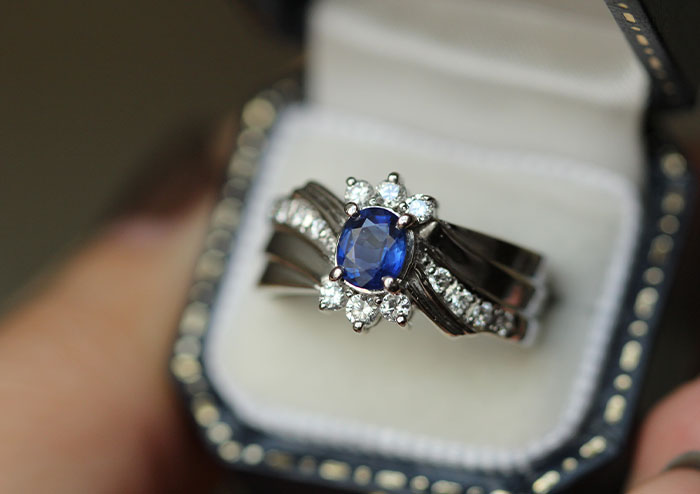
Image credits: ricochetpeestream
#2
40 hour work week. We should be on 32 hours and 3 day weekends. No loss in productivity.
Image credits: MasteroChieftan
#3
My grandmother won the lottery, twice.Not huge, but decent, in the tens of thousands both times.
Both times (and 10% of her income) she tithed the whole amount to the Catholic church.
The Vatican is litterally made of gold and ivory, but they need my Grandma's paycheck? Her lottery winnings?
That's a scam if ever I saw one.
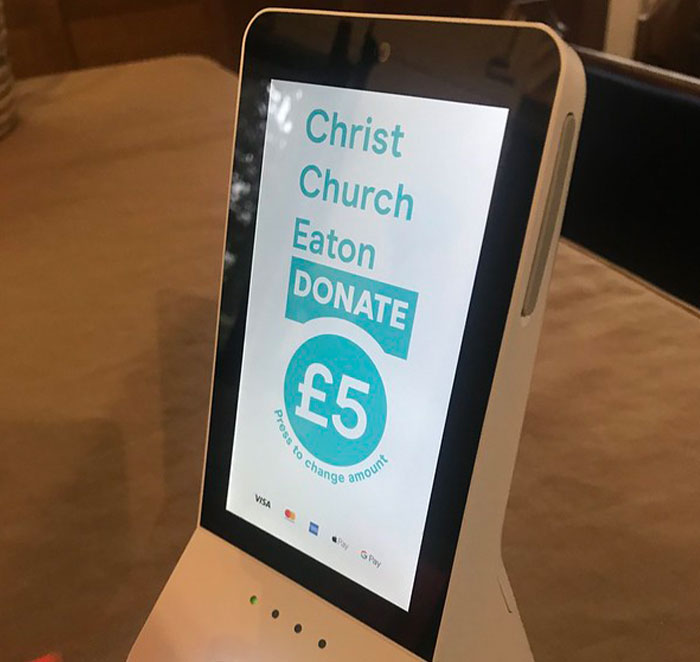
Image credits: Knytemare44
Redditor u/efd71f03 revealed to Bored Panda what the inspiration behind their thread was. According to them, they felt "annoyed about tipping in the USA" and that's what sparked the idea to start a discussion on r/AskReddit about all the things that people are so used to, they don't even consider whether they could be scams.
In the OP's opinion, the best ways to avoid getting swindled include "getting educated about particular scams," as well as listening to your gut. "Remember the rule, 'if it's too good to be true, it probably is,'" they shared with us.
There are two main issues at work here when it comes to scams that become a part of a society's culture. The first is that people tend to behave in a way that matches what others around them do.
So, for example, if everyone’s talking about the importance of engagement rings and competing on whose is the biggest, shiniest, and most impressive one, you’re likely to feel a lot of peer pressure to conform. We value our status in society. We want to be respected and adored. It’s hard to go against the grain, especially when it comes to traditions because we yearn for social approval. And sometimes, that approval sparkles like an engagement ring.
According to Grand View Research, the diamond jewelry market was valued at 340.6 billion dollars in 2022, globally. Meanwhile, Verified Market Research valued the United States and Canadian diamond engagement ring market size at 28.6 million dollars in 2019. It’s projected to grow to 39.7 million dollars by the year 2027. In short, diamonds are big business.
#4
Homeopathy.It's 100% a scam, you're just getting filler tablets, I will fight you.

Image credits: spike4379
#5
Having children
Image credits: imnew_here_helpme
#6
The concept that you work from 16 to 18 years of age, until 65-70 and somehow anything in between that is wrong. There is too much s**t interconnected to keep people slaving away only to blink and one day you’re 60.Before someone tries to justify “well you should live within your means” or “save better”, realize that’s part of the problem. The only reason the retirement age keeps getting pushed back is to keep people working as long as possible since the life expectancy keeps going up. Imo.

Image credits: Pure-Economics-8369
The second issue is that there is a lack of competition in the market. Ticketmaster has recently received a ton of criticism from music-lovers and high-ranking politicians for their business practices. The company is the world’s largest ticket seller and accounts for 70% of all tickets sold in the United States. Just recently, a Canadian law firm filed a class-action lawsuit against the company for inflating ticket prices for a Drake concert that is due to take place in July.
The BBC reports that earlier in March, Robert Smith, The Cure’s frontman, criticized Ticketmaster because it charged additional fees that ended up costing more than the value of the tickets. When a company has so much power and influence, it doesn’t necessarily prioritize its customers’ welfare. However, many folks don’t have an alternative and continue to use its services.
Bored Panda asked u/efd71f03, the author of the thread, for their opinion as to why so many Americans continue to use Ticketmaster even though it's becoming increasingly more apparent that the company doesn't have its clients' best interests at heart.
In the redditor's opinion, it's because "they either don't care or don't have any other choice."
At the same time, u/efd71f03 noted that all cultures are different, so what might be entirely accepted in one country might seem rather peculiar in another. According to them, "the entire industrial system" could be seen as a scam, however, they pointed out that this is "more a philosophical matter."
#7
Private health insurance, you pay premiums every month only to find out it doesn't cover what needs to be done.
Image credits: LettuceCapital546
#8
Tell you what. Property taxes - paying for what you already own? Now THAT'S a scam.-Dee Reynolds

Image credits: Rollthembones1989
#9
Donating money......to preachers with private jets
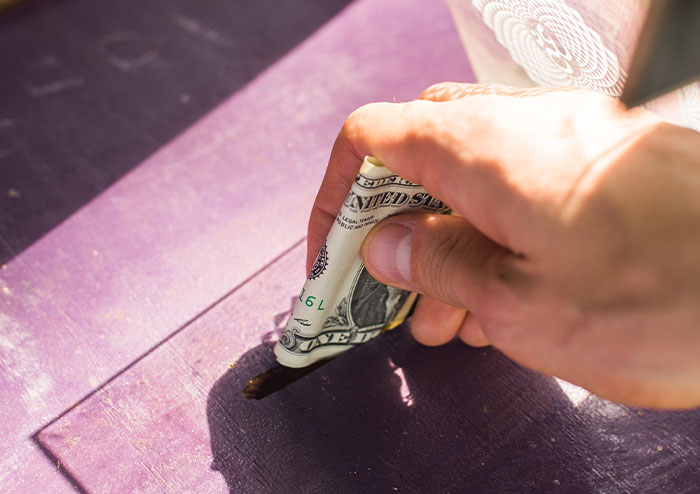
Image credits: icrushallevil
Many of us like to think that we’re more intelligent than the average person on the street (hi, Dunning-Krugger effect!) and that we’d never fall for a silly old trick. However, nobody is completely immune to getting bamboozled or swindled, no matter if the scams are large or small.
Absolutely everyone is susceptible to scams and everyone can be a victim. Scammers know how people think and feel, so they create situations where they can manipulate their marks by pretending to be a friend or creating an atmosphere of fear. There are three main ways to protect yourself from scammers: staying calm, keeping a tight grip on what info you share, and educating yourself.
First of all, it’s all about being in control of your emotions. The more you rush, the more likely you are to make a mistake you'll later regret. If you get a call or a message from an unknown number about a loved one being in an accident or that your bank’s shutting down your account, for instance, you have to proactively slow down and prevent yourself from panicking.
Get in touch with your family, friends, or neighbors so they can offer you another perspective. In our experience, two heads are always better than one, and a friendly local can prevent someone from falling prey to scammers. In the meantime, don’t click on any suspicious links, and don’t lose your head. Often, if something sounds too good or too awful to be true, it probably is.
#10
Carbon offsetting.Millionaire wants to offset his carbon use so he donates a percentage of his fortune to a climate charity who promises that every dollar he spends will allow him to continue to pollute at the levels he does.
Half of all these carbon offsetting charities don't actually reduce carbon emissions... or if they do they exaggerate by how much they do it.
So if a person gives $100K to one of these charities and they don't reduce emissions by the levels they say they do.... do the rich person still have to give more money or can he just pretend that he's done enough?
#11
Electric cars - Have you ever heard of ethically mined cobalt? That's because it doesn't exist.#12
Multi-level-marketing schemes.
Image credits: GrownThenBrewed
Secondly, keep a tight lid on what information you share with others, especially strangers. Don’t give out any details if you can because a crafty enough swindler can use it against you in the future. That can also mean cleaning up your online presence so that others have less raw data to work with.
And finally, it’s vital to stay up to date with the latest scams. At least in passing. Read the news, talk to your friends and colleagues to see what’s new. Scams are something that will continue to evolve until the end of humankind as we know it, so never have the illusion they’ll stop at some point and we’ll live in a scam-free world.
It’s a constantly ongoing fight against swindlers who adapt to an ever-changing world and find new ways to trick the vulnerable, naive, greedy, and scared. Meanwhile, the internet has given criminals new tools to do this. What's more, it's easier to trick someone when you never have to meet them face to face and look them in the eyes...
#13
The fact that it’s very hard to find a job making any kind of decent money without going to college, yet you have to have a c**p ton of money to go to college
Image credits: Money_Potato2609
#14
People forced to get married. Or else your relationship is not valid.Lets be honest. The prices of a classic wedding are insane. And all for one day and mostly to impress others.

Image credits: GoodAlicia
#15
College prices#16
herbalife
Image credits: brightstar9
#17
Valentine’s day#18
CEO's pay#19
Catholicism in Poland. It exist only to leech from poor and uneducated, a "lost" generation that was raised during communism regime.#20
Tipping: makes no sense to me as an European.
Image credits: efd71f03
#21
The lottery. Just state sponsored gambling for poor people
Image credits: Dbonzai12
#22
McDonald's happy meals. Does it really bring happiness and fulfillment? Or just diabetes...
Image credits: r0cket_Noodle
#23
Trickle down economics#24
PromSchool sports
School rings
All the things above require money spent by young people (by proxy, their parents).
It's all what's known as "induced demand". When you get can't get money out of adults, you move further down to their kids.
Saturday morning cartoons had commercials and employed the "nag effect" where the kids nagged their parents to death to buy them the toys that were advertised.
With "important" things like prom, sports, rings, for older kids, these are all a more nuanced or subtle form of the nag effect. By promoting this concept of "school spirit", kids feel compelled to be part of the in-group and do what everyone else is doing. The schools condone it, they sponsor it, and the businesses that spring up in the periphery around it reap all the rewards. *And they heavily gouge these kids (and their parents).* Dress and suit rentals and stores. Limo rentals. Sports supply and equipment stores. Jewelers who sell the rings. All of it heavily marked up, of course, because the kids **must** have these things.
So now everyone is told that if they don't go to prom, that's so sad. If they don't get involved in sports or do other things, that's so sad. If you don't get a school ring, that's so sad. Although I think the school ring is started to go away, right?
I say all of this as a former photographer who knows very well the demands of school seniors and their photos (I don't do them, it took one or two to make me hate it). They couldn't care less if it wasn't for instagram and the entire industry feeding off this need for validation. I mean, we didn't when I was a senior.
Oh and don't even get me started on weddings...

Image credits: Engelgrafik
#25
Religion#26
Extended warranties.#27
I think most day to day things are now scams to a certain extent.I mean if you look at a scam as something that’s in place to take unfair advantage of a person, then most facets of life are scams.
Even the most innocent concepts and programs can be viewed as scams, look at things like food donations to help the needy, maybe on the surface it’s not a scam… but it’s in place bc the way the current system is setup, it’s taking advantage of people and forcing others to step up and support them.
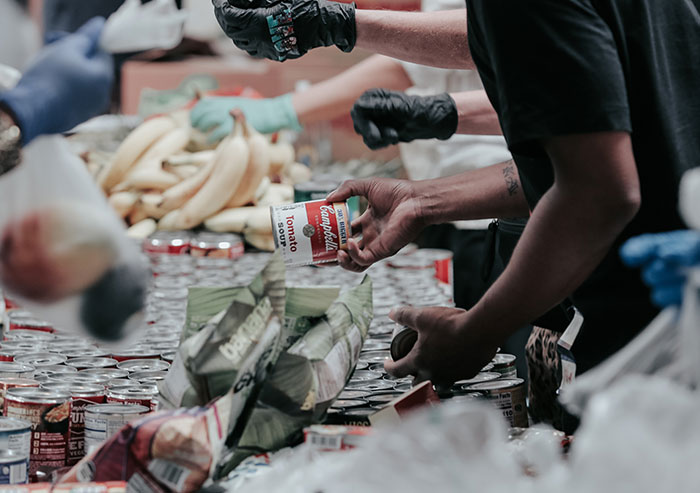
Image credits: nunyabizz0000
#28
The American voting system (gerrymandering in particular)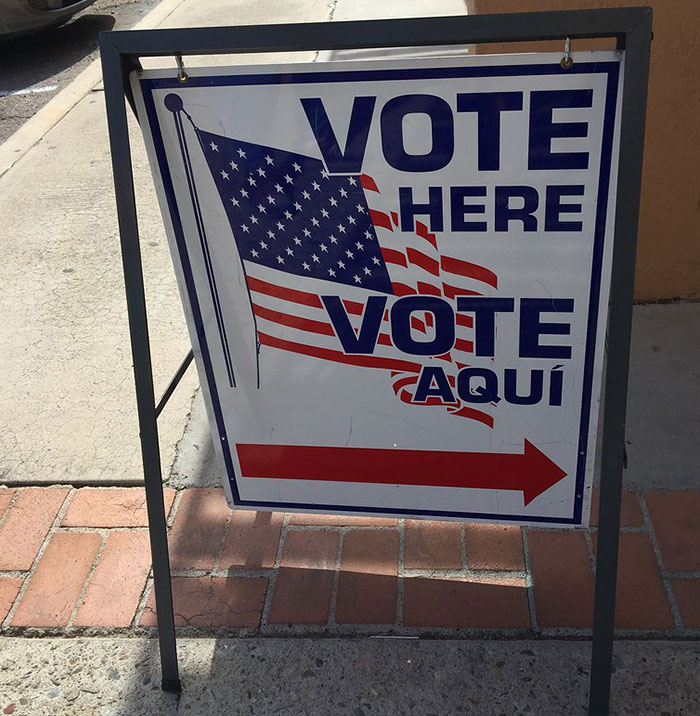
Image credits: Cat_o_meter
#29
Rent increases due to "market value" with no upgrades to the property.
Image credits: HappyTimeHollis
#30
Ticketmaster fees#31
Micro purchases in video games#32
dating apps#33
Chopping a chicken wing in half and selling it as two wings.
Image credits: Darkroomist
#34
diamonds. I'm sure people can create much much cheaper artificial gems that will look more fancy than diamonds (not to mention actual artificial diamonds which are cheaper too)#35
Chiropractors.#36
Insurance, that cant even covered your bills.#37
ATM Surcharge#38
2-4+ dollars for a cup of coffee with breakfast. Growing up, coffee came as part of breakfast. Now I drink water wirh breakfast at restaurants, then make a pot of coffee at home.#39
The so called American Dream.
Image credits: Super-Diver-1266
#40
Microtransactions#41
The government being accountable for how our money is spent.
Image credits: BOMBSHELL_ALERT
#42
‘Temporary’ tax
Image credits: Bending_toast
#43
Bottled water.#44
Student teaching. You pay the college tuition, have to secure and pay for a place to live, often have to get a vehicle, and then agree to not have any outside employment during the semester long assignment. They want you to focus on learning how to become a teacher is the argument but unless you have alternate means of support it's not feasible for many. And folks wonder why young people are not pursuing this option. It's the first of many issues with how teachers are educated and trained
Image credits: TeacherLady3
#45
A lot of college degrees/coursesEdit: apparently, some people are telling me that what I am saying is wrong and that useful degrees exist. Let me clarify:
I said *’A lot’*
Here’s the definition:
**lot**
/lät/
*pronoun*
a large number or amount; a great deal.
I did **not** say *’all’*
Here’s the definition:
**all**
/ôl/
*predeterminer · determiner · pronoun
determiner:* all; pronoun: all
used to refer to the whole quantity or extent of a particular group or thing
‘A lot’ ≠ ‘all’
Ex:
“I do not like a lot of types of cheese” ≠ “I do not like all types of cheese”, “I do not like a lot of dogs” ≠ “I do not like all dogs”
I am not saying all degrees or courses are useless or a scam, I’m saying a lot of them are. Yes, I am in college pursuing an Engineering degree. I have taken chemistry, physics, math, and others courses. They are useful. I see people pursuing degrees in biology, psychology, chemistry, etc. those are useful. However, there are other courses that are not useful.

Image credits: budoucnost
#46
Taxes on your incomes + taxes on what you buyTaxes to drive a car + taxes to park the car
In France we have a tax on a tax : we have a tax that is calculate on your income before another tax is levied !
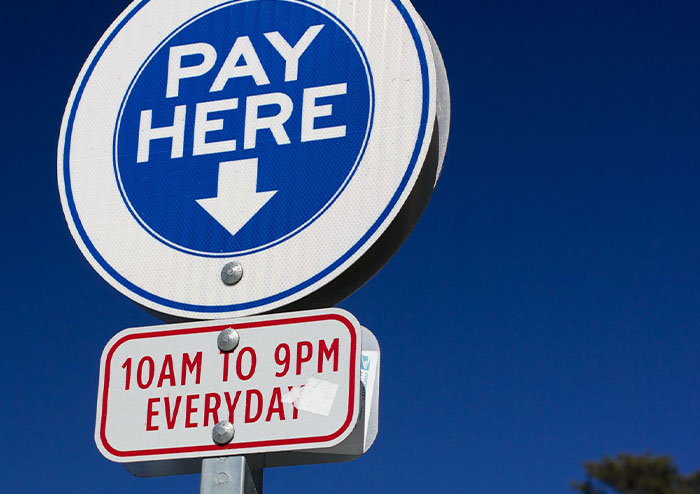
Image credits: Kerlutinoec
#47
Weight watchers or slimming world
Image credits: fodmap_victim
#48
Entry level customer service jobs.#49
Wall street shenanigans.#50
I suppose this has changed a bit in recent times but college textbooks are a massive scam. Costing hundreds of dollars to buy or even to rent and half the time you don't even use them.#51
Private health insurance. The layer of expensive bureaucracy and ludicrous profits make healthcare unaffordable for many and clog up emergency rooms, which jack up rates to subsidize those who can't afford the often unnecessary level of treatment. But less expensive family doctors won't see you without insurance.#52
Tipping.And astrology.
#53
US Healthcare#54
Paying "book time" at the mechanic. Basically every type of repair is categorized and given an amount of time that it should take to complete. The people who write this book are very generous to the mechanic with many 5 minute fixes being billable for 0.75-1 hour and 1-2 hour fixes being billable for 5+ hours. Industry people see it as completely normal.#55
Interest and the entire banking system.#56
Capitalism#57
drink prices at bars.#58
US Stock market#59
the bank is a safe place to store money#60
Buying life insurance when you’re not married and don’t have dependents. Stupidest decision you can make as a 20 year old early on life. What a waste of money and payments going down the drain#61
Electoral College.#62
Pensions systems in many European countries.It's basically a Ponzi scheme.

Image credits: JavitoMA
#63
Ponzi schemes are still seen as legitimate investments in some cultures. #scam #culture#64
Souvenir stores.#65
Funeral homes#66
Social programs. They are touted as “free”. But you, your kids, their kids, and their kids will pay for it. And it’s always a bloated, poorly managed government thing.#67
Engagement rings for sure.Also, most small fines, parking tix, etc

Image credits: ThirstyGherkin
















